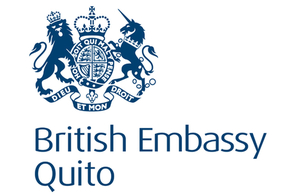UK statement on the WTO Joint Initiative on E-Commerce
Thank you, Chair.
As this is the first time that I have taken the floor in this Joint Initiative, let me start by thanking you, Japan, and Singapore for the leadership that you have given this vital Initiative since its launch at the WTO’s eleventh Ministerial Conference in December 2017. This morning, I will be saying a few more words than is usual in this setting.
The success of the Joint Initiatives is key to the credibility of the WTO and the future direction of the global trading system that depends on it. These Initiatives offer the WTO a dynamic, new and constructive framework for addressing the key trade issues of our time.
E-commerce of course is not a new issue for the WTO. The WTO agreed a Work Programme on E-Commerce in 1998, in the same month that Google was founded, showing great prescience and giving hope that this new organization, the WTO, would play a leading role in the future of the global economy. But it was not to be. Since 1998 the WTO has agreed no new rules on e-commerce. Meanwhile, Google has grown into a company with a market capitalization of $1.5 trillion and 1.7 billion unique users every day. That’s over 20% of the world’s population, which is quite some market penetration.
Google is but one of the most highly visible manifestations of the transformation of the global economy since the WTO agreed its Work Programme in 1998. It is also not a particularly helpful one, as it is certainly not representative. The value of worldwide e-commerce transactions totalled US$27.7 trillion in 2016 and has, on the whole, little to do with Google and everything to do with the way digital technologies are transforming the global trading system and indeed all our economies. Global exports of services, enabled by information and communications technology, have more than doubled between 2005 and 2018. Costs associated with trade in services declined by almost 10% between 2000 and 2017. From banking to retail, and design to education, services which traditionally had to be delivered face-to-face in a fixed location can now be delivered remotely and often much more cheaply to a much wider market. To quote the World Trade Report 2019, the non-tradable has become, in this period, hyper-tradable.
And, of course, the revolution is far from over. Big Data, Artificial Intelligence, and the Internet of Things are likely to transform our economies even more fundamentally than did the Search, Social Media and Online Shopping.
The UK doesn’t have its own Google or Amazon. But we have a huge stake in e-commerce and digital trade. Digital businesses in the UK contributed £149 billion to the UK economy in 2018, employing more than 1.5 million people and contributing almost 8% of the UK’s gross value added. Telecommunication, computer and information services are some of the UK’s fastest growing service exports. They have more than doubled in the last decade. Our world-leading financial, legal and accounting firms have also been transformed by this ongoing digital revolution. In 2018, nearly 70% of the UK’s services exports were delivered remotely, totalling an estimated value of more than £190 billion.
Nor do developing countries have their Google or Amazon, although China is an exception here as in so many other areas. But that does not mean that e-commerce, digital trade and digital economies are not essential for the developing countries in this room; not in some distant developed future, but now. Of the top ten leading ICT manufacturing countries – literally building the digital economy – over half of them are developing economies according to UNCTAD. According to the Harvard Business Review, India and Brazil could emerge along with China among the top ten data economies. And East Africa has played a pioneering role in developing a whole new digital sector, mobile banking, that has opened up access to financial services for individuals and business there, in unprecedented ways.
All this has happened without the WTO, and would not have happened if the wrong sort of rules had been brought in from the start. But it is beyond time for the world to put in place digital rules; not rules that close down the future before it arrives, but rules that unlock the extraordinary economic potential that a truly global digital economy promises.
For all these reasons, the United Kingdom has been a long-standing supporter of this Initiative. In the margins of the WTO’s tenth Ministerial Conference, we helped bring together developing countries who made such a powerful case for the WTO to launch e-commerce negotiations. As part of the European Union, we were a leading supporter when the JSI on E-Commerce was launched at the eleventh Ministerial. Now, outside of the EU, we will be working enthusiastically with the EU and others including developing Members to build on the current momentum.
This Initiative is about more than e-commerce. It goes to the credibility of the WTO itself, and its ability to deliver relevant global trade rules fit for the twenty-first century, in the way the GATT did for the twentieth. The United Kingdom will from today be doing all it can, in its own right, to ensure that this Initiative reaches a successful conclusion.
Thank you, Chair.
